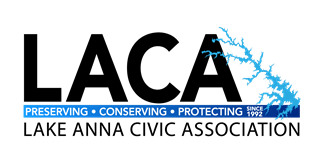By Jean McCormick – May 2021
About 95% of boaters fuel their boats before launching. Therefore, most of our boat engines are subjected to ethanol infused gasoline that is sold in most retail gas stations.
Ethanol is used as an “oxygenate” and is added to fuel to help reduce hydrocarbon emissions that cause air pollution. It is a highly refined grain alcohol, approximately 200 proof, that can be produced from natural products such as corn, sugar cane and wheat. The term “ethanol blended fuel” or E10 refers to fuel that contains 10% ethanol and 90% gasoline.
Ethanol is also used to enhance the octane rating of gasoline. Higher octane gas resists detonation. So, it burns rather than explodes. But raising the octane level of gas is expensive. Therefore, premium fuel costs more than regular unleaded. Ethanol molecules contain oxygen, which allows the engine to more completely combust the fuel. That results in fewer emissions and less environmental pollution.
Most marine engine manufacturers suggest that 10% or less ethanol gasoline be used in their products.
However, there are three main problems with ethanol:
1. Since ethanol is an alcohol, it can dry out rubber compounds in your fuel system. This can lead to cracked and brittle fuel lines, floats and seals. If that causes a gas leak, an ignition spark can cause an explosion.
2. Ethanol likes water. Gas with added ethanol can attract and absorb about 10 times as much water and still burn through the engine. Water can enter when fuel containers are filled. That mix can cause corrosion of internal parts and condensation. When water comes into contact with ethanol blended fuel, the fuel and water can separate to form distinct layers in your tank. The upper gasoline layer will be depleted of ethanol and have a reduced octane level. The lower layer becomes a corrosive mix of water and ethanol. An engine won’t run on this water soaked, highly corrosive ethanol solution which ultimately can sink to the bottom of the tank. This situation usually requires that you drain and clean the tank before refilling it with fresh, hopefully, ethanol-free gasoline. 
3. Ethanol is a powerful solvent, and, over time, it can dissolve fiberglass fuel tanks. It also reacts with fuel filters and carburetors. Ethanol is an excellent cleaner, but at levels found in E10 gas, it can act as a solvent that can clean sludge but can also dissolve polymers (term used to describe plastics). This could stop your engine!
On the other hand, non-ethanol gas lasts much longer while in storage. It is not as likely to succumb to oxidation or evaporation. If stored properly, ethanol-free gas can last up to six months without deterioration. This six-month shelf life makes ethanol -free gas ideal for use in seasonal boat engines. E10 gas has a three month or less, shelf life before the deterioration process begins.
If you find yourself having to use E10 gas in your boat or any other small engine that is seasonal and sits for periods of time, think about the following tips:
• Never use E10 gas that is over 90 days old. Ethanol shortens the shelf life and old gas is likely to absorb water and cause problems.
• Limit sludge build up. Keep up with your maintenance schedule, changing filters, etc.
• Take care of problems immediately. Repetitive performance issues such as a carburetor that is continually fouling needs a proactive approach.
• Drain fuel, replace with fresh—ethanol free—gas, if possible. Use quality fuel treatment to counter act some of the effects of ethanol in the gas. But read labels carefully—-many fuel additives contain ethanol or other alcohol products.
• The best additives do not have alcohol in them. A quality fuel additive treatment should combine combustion improvement, alcohol free protection, and detergents in a single product. The best products have excellent non-alcohol-based water absorbing ingredients. These additives improve fuel efficiency that has been lost to ethanol, improve engine performance and cut engine emissions. These products also clean your injectors, valves and other engine parts that may be fouled due to ethanol’s solvency sludge deposits.
Following these tips should help your boat engine run well, even if fueled with E10 gasoline.
